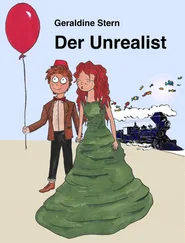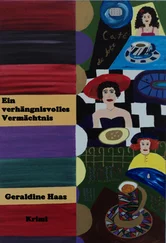It seems clear from the disposition of the artillery that we are poised for an attempt on that little river town so sacred to the history of our struggle. Last night, I conducted a service; the lieutenant colonel, a shouting Methodist with a fine pair of bellows, sang a gathering hymn. We could not have a light for it might attract the fire of the enemy, so we prayed in the dark, and I sermonized about grizzled old John Brown and his band of boys, black and white, who came to this very place in an attempt to liberate the slaves, and how our efforts soon might secure the ends that had eluded them. Because it was dark, I could not read the men’s faces, but all listened in respectful silence until the snow brought down a white curtain on our service.
When I stepped out of my cloth house this morning and into this sparkling world, my thoughts flew northward, for you will recall that it was on just such a crisp and luminous day that I first saw you…
I lifted my head, and she was there before me: seated in the second pew of her brother’s chapel in Connecticut. The Reverend Day had called on me to reinforce his own message; he had grown, he confessed, somewhat dispirited, after toiling for six of his best years in that place with so little visible effect. The village remained a forest of wagging fingers whose citizens were content to condemn, yet unprepared to do anything material against the system that provided their mills with cotton. He had invited me to speak, and I was in full flight, denouncing, as I recollect, the lamentable exclusion of the president’s slave from the state funeral that had taken place earlier in that week. Six men, including our secretary of state, had perished together when the test firing of a heralded new weapon had gone awry. Five of them had been accorded the rites of national mourning. For the sixth, the black man, there had been no public grief. “This man,” I said, “was held equal by the shrapnel that tore his body. He was human enough to die beside them, yet not human enough to be mourned with them. Thus does the minister who led that service turn religion, which should be our pole star, into a beacon of intolerance!”
She had been sitting with her head bowed, her face obscured by the brim of her bonnet. She was wearing a simple gown in a shade of palest lemon, so that she seemed to amplify the bright, snowrefracted sunlight that poured down from the chapel’s high transoms. Suddenly, she looked up, directing her gaze right at me. Her hair was glossy black, and her eyes—her intelligent, expressive eyes—were dark and shining as a Spaniard’s. When I met those eyes, my words flew away, as if they had risen up through the window panes and taken wing on the cold air. I faltered, fumbled with my notes, felt the flush begin to rise. As is ever true, the mortification of realizing one is about to blush only made the blood throb harder. I was twenty-two, and vexed at myself that I still colored as easily as a guilty schoolboy. I stood in that maghogany pulpit, and I must have glowed brighter than a jar of pickled beets. Helpless, I offered a silent prayer for self-command, which by grace was answered, so that I was able to go on. But I took care not to glance again in that dangerous direction until I reached the end of my text. When I dared to allow my eyes to seek her, she was looking down again, the radiance safely quenched once more beneath the armor of her hat brim.
After the service, her brother presented Miss Margaret Marie Day, whom everyone in the family called by the affectionate childhood name of Marmee. I was invited to dine, of course, and I had to call on a lifetime’s discipline to keep myself from staring fixedly at her face. It was not by any means a face that the conventional world would label beautiful, and certainly the word pretty had no part in it; her skin was olive-gold rather than society’s preferred pallor, the cheekbones were set rather high and wide, the nose rather long, the chin decided rather than delicate. But the effect was such that the word which kept presenting itself to me was noble —she resembled an aristocrat rendered by the brush of some Iberian court painter.
During the dinner, she acted the part of hostess, as Mrs. Day was recuperating from a difficult lying in with her second child. Miss Day did not have a large share in the conversation, but neither did she radiate shyness or indifference. She was, rather, an active listener, seeming to drink in the words of her brother and his other guests, including, I was flattered to note, myself. It was a family alive with good feeling, their zeal for reform matched by a zest for life. There was lively discussion of serious subjects, but there was also laughter, and in this Miss Day participated with an unstudied naturalness that filled me with warmth toward her. The meal was unpretentious and hearty—I took bread, cheese, and apples, bountifully served up in a cloth-lined orchard basket.
I was invited to spend the night at the parsonage, and I woke the next morning to the most astonishing sound. In fact, even before it wakened me, the music penetrated my dreams, and somewhere between sleep and consiousness, I had a vision of a lark in full-throated song. In my dream, I did not marvel that a bird should have the gift of language, but only that it should be so well schooled in the repertoire of bel canto . When I came to full consciousness, I realized that the sweet soprano must belong to Miss Day. She sang as she went about her morning duties. Lying in my bed, I envied my colleague such a reveille. I pictured the generous lips giving shape to the lyrics, the throat from which the music issued. I imagined my fingers lying lightly there, feeling the glorious vibration. I saw the rise and fall of her breast as she gave breath to each sweet note.
The consequences of these thoughts meant that I was a little delayed before I was able to present myself at breakfast. When finally I felt able to come downstairs, I learned that Mr. Day was unexpectedly called out on a pastoral emergency. “The person is not, strictly speaking, a member of his flock,” confided Miss Day, as she pressed a basket of fragrant, steaming muffins upon me, “but a horrid, stiffshirted old Calvinist.” I smiled at her frank expression. “But for my brother, to hear of a hurt is to seek to heal it. He has ever been thus, even as a small boy, bringing in every waif and stray that crossed his path. Once, he even brought home an injured dog whose only thanks for his succour was a series of very savage bites.” She wore a tender expression as she spoke of this much beloved older brother, and for the second time that day, I felt a stab of envy.
Miss Day did not retire after the meal with some slight excuse, as other young ladies of that time might have felt obliged to do, on finding themselves alone with a bachelor stranger. Instead, she led me into the parlor and commenced to converse with an open manner and a lack of affectation that I found remarkable and refreshing. We had spoken, the evening before, of her brother’s views of education. While he had enumerated what he saw as the deficencies of the Connecticut common schools, she had said little. But now she expressed herself freely, and fiercely, on the particular deficiencies in female education.
“It is bad enough that so few, so pathetically few of us are advanced an education worth the name at all,” she said. “But worse that we, the fortunate ones, whose families seek out the best for us, are subjected to a course of study that is stultifying, oppressive, crippling rather than enhancing to our moral integrity and intellectual growth.”
I asked her to enumerate specific areas in which she found flaws, and it was like tapping a wellspring. She jumped up from her chair. She was wearing another unadorned gown, this one the color of rich caramel that looked well against the tones of her skin. It rustled as she paced, her stride as wide as a man’s.
Читать дальше












